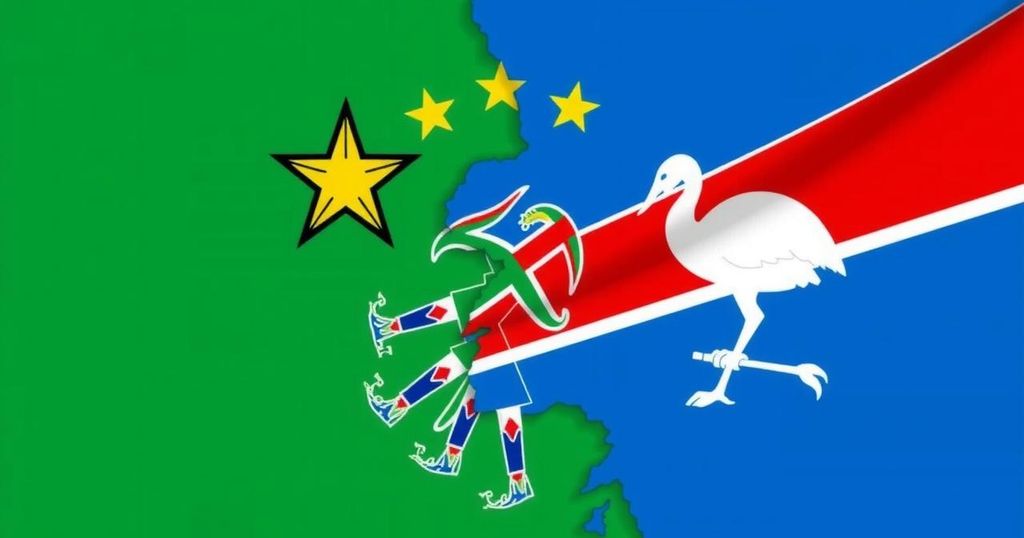Namibia Elections: Swapo’s Declining Power Amidst Opposition Gains in Africa

In the latest Namibian elections, Swapo maintained power but suffered significant losses, reflecting a broader trend in sub-Saharan Africa where established governments face electoral challenges. Opposition parties are gaining traction amid growing public frustration over economic issues and corruption, paving the way for a redefined political landscape characterized by democratic resilience and citizen engagement.
In recent elections, Namibia’s ruling party, Swapo, has experienced a notable decline in its electoral dominance, despite winning the presidential election with 57% of the vote, marking the election of the country’s first female leader, Netumbo Nandi-Ndaitwah. However, opposition parties contest the legitimacy of these results, calling attention to significant electoral irregularities and Swapo’s poor performance in the parliamentary elections, where it lost 12 of its 63 seats. This scenario is emblematic of a wider trend observed across sub-Saharan Africa in 2024, as governing parties face increasing challenges at the polls, losing ground amid economic difficulties and public discontent over corruption.
Throughout Africa, many ruling parties have faced electoral setbacks, commonly attributed to economic downturns, rising corruption intolerance, and strengthened opposition coalitions. For instance, in Botswana, the long-standing Botswana Democratic Party faced a historic defeat in recent elections, dramatically diminishing its parliamentary presence. Similarly, in Mauritius, the Alliance Lepep coalition suffered a significant reduction in representation, which has led to substantial political shifts in both regions.
The political landscape in Senegal also reflected these trends, where opposition leaders who had previously been imprisoned capitalized on their release to gain popular support. Even when establishing coalitions, such as the Umbrella for Democratic Change in Botswana, opposition parties have effectively consolidated their efforts to challenge ruling parties.
In the case of South Africa, the African National Congress retained power but found itself having to compromise significantly in governance, receiving less than 50% of the vote—a major shift since the end of apartheid. Such developments suggest a broader pattern of increased political competition and evolving democratic landscapes in a region historically marked by entrenched power structures.
The challenges faced by ruling parties in sub-Saharan Africa are reflective of a global phenomenon, where citizens are voicing their frustration over economic hardships, as seen in other nations like the United Kingdom and the United States. In conclusion, both civil society and opposition parties in sub-Saharan Africa are demanding greater accountability from their governments, indicating a stronger democratic resilience than previously recognized, even amidst a global backdrop of rising authoritarianism.
The context of this article centers on the evolving political dynamics in sub-Saharan Africa, particularly highlighting electoral trends in Namibia and other countries where governing parties are increasingly challenged. The article discusses how longstanding incumbencies, such as Swapo in Namibia and the Botswana Democratic Party, have faced scrutiny and declining popularity amidst public dissatisfaction driven by economic conditions and corruption. Emerging opposition coalitions are strategically responding to these challenges, presenting united fronts against ruling parties, thereby reshaping the political landscape.
In summary, the electoral results in Namibia and other sub-Saharan African countries reveal a significant shift in political power dynamics, with ruling parties encountering substantial challenges. Factors such as public discontent over economic conditions and corruption, alongside the emergence of effective opposition coalitions, bolster the argument for enhanced democratic resilience in the region. This trend suggests that citizens are increasingly demanding accountability and reform from their governments, signaling a critical phase in African democracy.
Original Source: www.bbc.com





